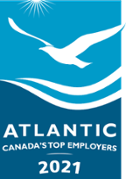The Departments of Biological Sciences and Mathematics and Statistics of the Faculty of Science, Applied Science, and Engineering, at the University of New Brunswick's Saint John campus jointly invite applications for a NSERC Tier 1 Canada Research Chair in Data Science and Modelling for Coastal Ecosystems. This is a tenured or tenure-track appointment at the rank of Associate or Full Professor, commensurate with the candidate's qualifications and experience.
This position will uphold UNB's commitment to increasing the representation of women among its chairholders. Therefore, only applicants who self-identify as a woman will be considered for this opportunity.
This position has an anticipated start date of January 1, 2023, pending a successful CRC nomination, or such other date as may be negotiated with the successful applicant. Review of applications will commence on October 1, 2021 and will continue until the position is filled.
Per UNB regulations, the applicant must have a PhD in a relevant discipline. These disciplines may include, but are not limited to Statistics, Mathematics, and Biology. We seek applicants with a demonstrated record of research excellence indicated through a high-quality publishing record in highly-regarded scholarly journals and international conferences who apply their knowledge to problems in coastal systems. The Chair will establish an externally-funded research program at UNB that includes use of cutting-edge quantitative approaches to address applied problems relevant to the sustainable management of Canada's coastal ecosystems (e.g., contaminants, climate change, conservation, fisheries & aquaculture, ecological forecasting, risk assessment, decision science). They will attract, develop, and retain excellent students (Honours, MSc, and PhD) and other trainees. The Chair will also contribute to undergraduate teaching (no more than the equivalent of one full course per year) and to departmental and university service at a reduced rate from that of regular faculty members. Candidates should have demonstrated excellence in teaching, including at the undergraduate level, and a commitment to an inclusive learning environment for all students.
Tier 1 chairs are for outstanding researchers acknowledged by their peers as world leaders in their fields. UNB recognizes the legitimate impact that leaves (e.g., parental, illness) can have on a candidate's record of research achievement. Leaves will be taken into careful consideration during the assessment process. Please consult the Canada Research Chairs website for full program information, including further details on eligibility criteria.
UNB has been nurturing discovery and innovation for over 200 years. The Saint John campus, located where one of the largest watersheds in North America flows into the Bay of Fundy, has recognized strengths in Coastal Studies and is actively fostering further growth in this area. The Departments of Biological Sciences and Mathematics and Statistics offer 4-year BSc degrees in Marine Biology, Biology, Environmental Biology, Biology-Psychology, Mathematics, and Statistics as well as research-based MSc and PhD degrees in various areas of Biology, Mathematics, and Statistics. The Department of Biological Sciences has 20 faculty members with research expertise in a variety of fields of biology (with a focus on coastal ecosystems), as well as geology, chemistry, and physics. The Department of Mathematics and Statistics has a complement of 5 mathematicians and 2 statisticians. For more information, visit the Faculty website: http://www.unb.ca/saintjohn/sase. The concentration of expertise in marine biology and coastal studies within UNB Saint John and the region, including the Department of Fisheries and Oceans' Saint Andrews Biological Station, the Huntsman Marine Science Centre, and the New Brunswick Department of Fisheries and Aquaculture, provides many opportunities for collaboration. Historic Saint John is a vibrant small coastal city known for its livability and accessibility to a diversity of pristine natural ecosystems and outdoor recreation activities: https://saintjohn.ca/en/saint-john-new-brunswick.
Applications should be emailed to the attention of Dr. Michael van Zyll de Jong, Dean of Science, Applied Science and Engineering at sci-eng@unb.ca. Include a cover letter, your CV, statements of research and teaching interests, and three academic references with their contact information. Contact Dr. Heather Hunt (hhunt@unb.ca, 506-648-5915) or Dr. Tim Alderson (tim@unb.ca, 506-648-5622) for more information on the position and on the Departments of Biological Sciences and Mathematics and Statistics. All qualified individuals are encouraged to apply. Applicants should indicate current citizenship status. The offer of an appointment is conditional upon a successful outcome of the CRC nomination.
UNB ensures that employment opportunities are accessible to all applicants. To request accommodations at any stage in the recruitment and hiring process, please contact UNB's Recruitment & Employee Experience Specialist at 506-453-4648 or people@unb.ca.
Short-listed candidates will be required to provide satisfactory proof of credentials including appropriately certified translations of credentials into English, as applicable.
The University of New Brunswick is committed to fostering diversity within our community and developing an inclusive workplace that reflects the richness of the broader community that we serve. The University welcomes and encourages applications from all candidates who will help us achieve our goals, including women, visible minorities, Indigenous peoples, persons with disabilities, persons of any sexual orientation, gender identity or gender expression. We recognize that career paths are not always linear, particularly for individuals from marginalized groups, and we encourage applicants to explain the impact any career interruptions may have had on their research history. Preference will be given to Canadian citizens and permanent residents of Canada.


